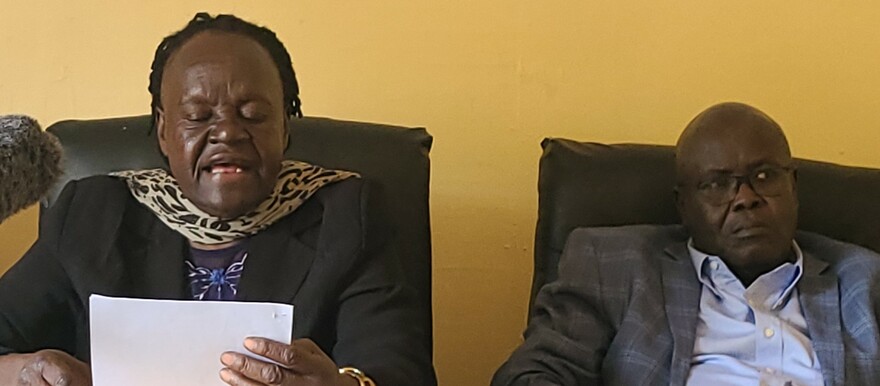A coalition of political parties in South Sudan is proposing a three-stage election process, with the presidential election taking precedence. The Reform Political Parties Coalition, comprising four parties including the National Liberation Party, United Democratic Party, National Congress Party, and Sudan African National Union, advocates for prioritizing the presidential election in the upcoming general elections.
According to Theresa Siricio Iro Wani, the coalition’s Chairperson, selecting the president entails less logistical effort compared to other constitutional positions.
During a press conference in Juba on Tuesday, Theresa stated, “The presidential election, which is the election of the president of the republic, should occur as the first stage of the general elections. This is because South Sudanese refugees and the displaced can register and vote wherever they may be.”
According to Theresa, in presidential elections, “There is no need for a census to determine the constituencies. The presidential election is only one constituency.” She mentioned that the writing of the new constitution has progressed significantly and can be completed within the remaining few months.
The coalition suggests a phased approach to elections. Following the presidential elections, elections for national constituencies would be next, followed by elections in the states and administrative areas, and finally, elections for town and rural councils.
“In the second stage, elections for all national constituencies should take place. Elections for the states and administrative areas should occur in the third stage. The final stage should be elections for town and rural councils of local government,” Theresa explained.
Additionally, the coalition proposed the formation of the office of prime minister, appointed by the president, with the mandate to form the cabinet.
“In the midst of the presidential elections, the Prime Minister will be appointed. The Premier should then form the Cabinet of Ministers and chair its meetings, provided that all are done in consultation with the President and his consent. The President appoints the Premier and the Ministers in their respective offices by decree and can lead them collectively or individually,” she added.
“Examples of this system can be found in our African neighbours, such as Uganda, Sudan, and Egypt, among others. The office of the Premier helps alleviate the increasing executive workload on the President. It’s essential for the government to maintain a lean size,” she emphasized.
South Sudan is expected to hold elections in December this year. For the first time, South Sudanese will get the chance to vote for a president, members of parliament, and several local offices.
As discussions about elections continue nationwide, South Sudan has yet to decide on the type of elections that will take place in December.




